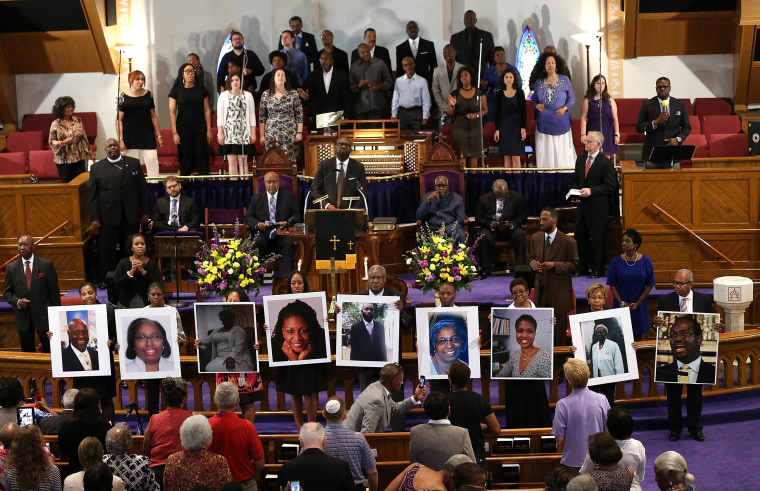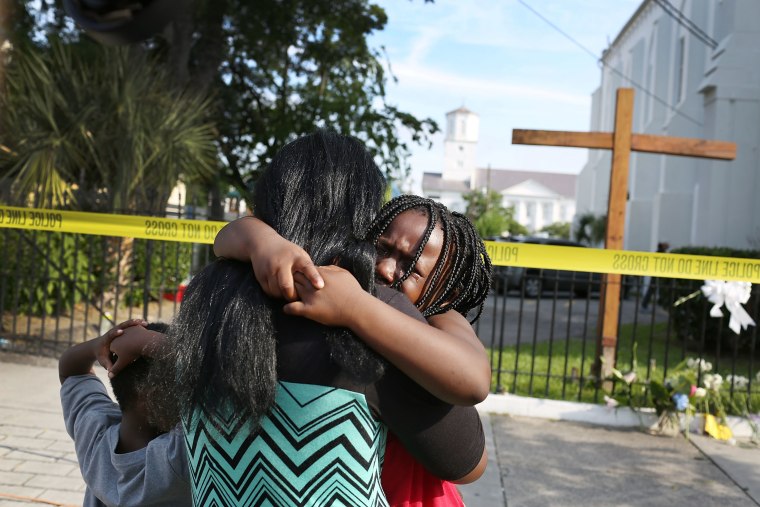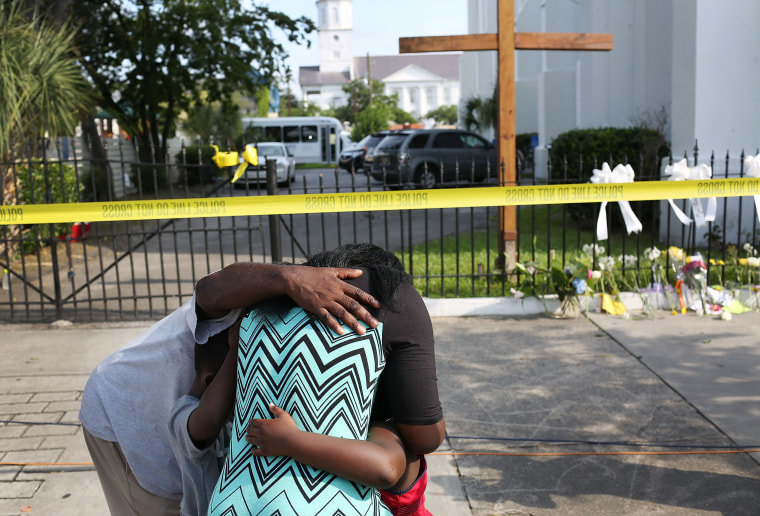In 1963, I was a little seven-year-old second grader who went to Israel Christian Methodist Episcopal Church with my grandparents every Sunday. I was there several times during the week after I got out of school, because this church like many, was a hub of the civil rights movement. At nine, I was a little soldier on the battlefield of a war I knew nothing about.
Church was safe. We children were protected and loved and lifted up. Then on September 15th the world changed for all of us churchgoing little black children. Four little girls went to the 16th Street Baptist Church in Birmingham, Alabama with their families, like all of us had done a million times—and they didn’t come home.
In what is now called a post-racial, transracial, multiracial America of 2015, going to church and not coming home seems absurd. Things like that could only happen against thes backdrop of old school hate.
Guess what? It feels like 1965 all over again.

It took waking up to a headline about a mass murder at an historic church in South Carolina, an act of terrorism by any standard, to get us back on point.
Earlier in the week, another journalist asked me if I could see any good coming from the bubbling mess that Rachel Dolenzal has made. I thought carefully before I said, “no.” All the things you want racial controversy to spark didn’t happen. We didn’t have intelligent conversations that would help us understand race, culture and privilege in this country. We got all caught up in some tragi-comedy that had nothing to do with equity, the value of all lives
It took waking up to a headline about a mass murder at an historic church in South Carolina, an act of terrorism by any standard, to get us back on point. Now we get to have some deep conversations about real world racism and hatred—if we choose to do so. And that is a good thing.
After the 1963 church bombing, I was terrified of the boogiemen and women of hate. I was scared that they were going to come with dogs and burning crosses, like I had seen footage of in so many terrible acts in the South. For a while, I got a pass from going to church because I was so scared. And when I think about it, I think my grandparents didn’t make me go because they were scared that they couldn’t keep me safe. It was the only break I ever saw in their absolute fierceness.

My pass from Sunday school, and fancy church dresses with patent leather shoes soon ended. I was back in the pews with the community that raised me. The external world had not changed. Black men were still getting lynched. College students were still being beaten and arrested. There was still what elected officials called, “the negro problem. ” And new heroes were emerging in the struggle.
The real difference came from within our ranks. Everything became a teachable moment. And everybody was a teacher. I now understand that even though our families couldn’t really protect us from the bad stuff in the race hate of the 60s, they could protect us with a wall of history, knowledge and context. They talked to us and explained. We talked to each other. Education—not just book learning but world learning was the armor that would protect us, along with our faith and our community. It held me in good stead.
I now understand that even though our families couldn’t really protect us from the bad stuff in the race hate of the 60s, they could protect us with a wall of history, knowledge and context.
It is unthinkable that in 2015, as Black America has accomplished so much, even amidst the struggles we still face, the simple act of people going to church to pray makes them targets. It hurts to think that nine people who loved and were loved did what people in this country do 365 days a year--go to church--and it end up being their last act of faith.
I don’t go to church on Sundays anymore. One of my friends, who is someone I first met in Sunday school at Israel C.M.E., said that he doesn’t physically go to church anymore either. He watches services online. But this Sunday he plans to go sit in the pews. He says he feels like he needs to do this to honor the people who were murdered by a young man so filled with hate. It is how he is going to grieve and heal.
I am one who needs to use her big girl words to grieve and heal. And I have a feeling that this won’t be the last time I will be doing this. I will do it as much as I need to—tirelessly and fearlessly, like my grandparents taught me. And when I get tired of writing and talking about it I will think of one of my favorite church songs, I Don’t Feel No Ways Tired, by the late Reverend James Cleveland. Then I will keep going.
I don't feel no ways tired, I've come too far from where I started from. Nobody told me that the road would be easy, I don't believe He brought me this far to leave me.
